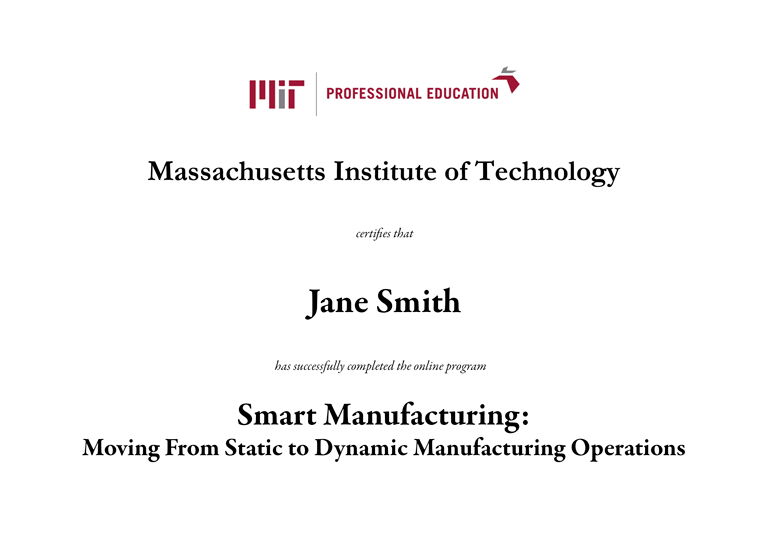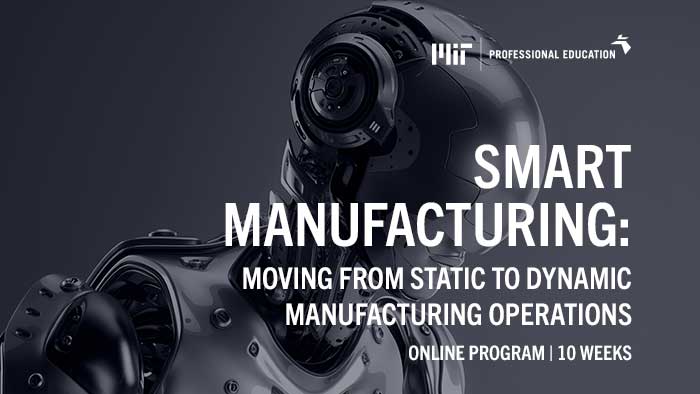Smart Manufacturing:
Moving From Static to Dynamic Manufacturing Operations
Welcome to Industry 4.0
The rapid evolution of technology is leading to a new industrial revolution. This revolution, based on cyber-physical production systems, challenges the traditional methods of completing operations in the manufacturing sector, making it increasingly dynamic.
Smart manufacturing consists of the convergence between the techniques used in modern data science and artificial intelligence, to create processes that can be used in the factory of the future.
But why is it necessary today?
Smart manufacturing technology increases efficiency and eliminates points of weakness in the system. It’s characterized by a highly connected, knowledge-enabled industrial enterprise where all organizations and operating systems are linked, leading to enhanced productivity, sustainability, and economic performance.
31%
Nearly a third of surveyed manufacturers do not recognize the time to invest in digital technology solutions for their businesses, saying corporate management must lead the effort to adopt smart manufacturing.
Source: Gartner
34%
A third of enterprises surveyed responded that one of the main challenges to implementing smart manufacturing solutions was to find capable people.
Source: Small Medium Enterprises
50%
50% of organizations lacked sufficient artificial intelligence (AI) and data literacy skills to achieve business value by 2020.
Source: Gartner
An online course to understand the advances in the manufacturing sector
The online course Smart Manufacturing: Operations in the 4th Industrial Revolution by MIT Professional Education unites new technologies, such as machine learning, the Internet of Things, and data analysis, resulting in comprehending the transformation process currently happening in the manufacturing sector. Discover the latest trends y problem resolution methods with smart manufacturing and learn how to apply these skills to your organization.
The factory of the future is here.
Do you know FrED?
In this online course, you will be immersed in smart manufacturing led by FrED, an intelligent machine designed by researchers at MIT, whose objective is to teach concepts, techniques, and advantages that are characterized by this technology.
The skills you will develop
1.
VISUALIZE THE PRODUCTION OF DATA
to better understand the key variables and phenomena underlying manufacturing
2.
CONTROL OF THE MANUFACTURING PROCESSES,
feedback, process modeling, and monitoring
3.
APPLICATION OF ADVANCED DATA ANALYSIS
to prepare statistic models and test manufacturing processes
4.
DEVELOPMENT OF MODELS
to make sense of data, and to examine and improve FrED
5.
DISCOVERY OF THE ROLE PLAYED BY SENSORS
in data production and smart manufacturing, and evaluation of the types of data that can be produced
6.
EVALUATION OF SENSORS
and their proportionate data
7.
ANALYSIS OF THE DIFFERENCES
between the actual and predicted dynamics
8.
DEEPEN UNDERSTANDING IN INNOVATION
of machines and artificial vision. Learn more about the different iterations of FrED, whose objective is to provide examples of optimizing machines
9.
EXAMINATION OF THE DISCOVERY PROCESS
of data that best adjust to a model. The adaptation of models and sensitivity analysis establish the connection between artificial vision and the control of statistical processes
10.
COMPLETION OF AN ADVANCED DATA ANALYSIS
using datasets produced through FrED during the manufacturing process
In addition, you will receive a Certificate of Completion
All the participants who successfully complete the online course Smart Manufacturing: Moving from Static to Dynamic Manufacturing Operations will receive an MIT Professional Education Certificate of Completion. Furthermore, participants will receive * MIT Continuing Education Units (CEUs)*.
To obtain CEUs, complete the accreditation confirmation, which is available at the end of the course. CEUs are calculated for each course based on the number of learning hours.
* The Continuing Education Unit (CEU) is defined as 10 contact hours of ongoing learning to indicate the amount of time they have devoted to a non-credit/non-degree professional development program.
To understand whether or not these CEUs may be applied toward professional certification, licensing requirements, or other required training or continuing education hours, please consult your training department or licensing authority directly.

This course is directed towards
- MANAGERS OF PLANTS, PRODUCTION, AND OPERATIONS
who work in the manufacturing sector.
- DATA SCIENTISTS
who want to put their capabilities into practice in the field of smart manufacturing.
- DESIGN AND MANUFACTURING ENGINEERS
who are looking to learn about data and development models in the manufacturing sector.
- CONSULTANTS
whose objective is to put additional value on the latest innovative technology in the manufacturing sector.
This is considered a technical course by character. However, the material is accessible and relevant both to professionals who have background knowledge of smart manufacturing, and for those who already have experience in this field.
It is highly recommended that functional and cross-functional teams carry out the course together, in order to accelerate the process of adopting smart manufacturing practices.
Meet the instructor of this course
Listed in alphabetical order
DR. BRIAN W. ANTHONY
Director of the MIT Master of Engineering in Advanced Manufacturing and Design. Associate Director, MIT.nano

“Using technology to streamline the manufacturing process allows us to offer better products on the market, faster and more economically”.
Learn more
Dr. Anthony is director of the MIT Master of Engineering in Manufacturing Program and co-director of the Medical Electronic Device Realization Center. He possesses more than 20 years of product realization experience and has won an Emmy from the Academy of Television Arts and Sciences for his innovations in broadcast technology. Dr. Anthony designs instruments and techniques to monitor and control physical systems. His work involves the analysis and the design of systems. He also uses mechanical, electrical and optical engineering as well as computer science and optimization to develop solutions.
Dr. Anthony´s research revolves around the design of instruments and techniques for measuring and controlling complex physical systems and includes the development of instruments and measurement solutions for manufacturing, medical diagnostics, and imaging diagnostics. In addition to his academic work, he has extensive experience in market-driven technological innovation, product development and entrepreneurship, and marketing at the point where information technology and advanced manufacturing come into contact. As a teacher, his main interests are the modeling of large-scale systems in a variety of areas involving decision making and the development of optimization algorithms and software useful for analyzing and designing these types of systems. He is an expert in market-driven technological innovations, as well as in entrepreneurship.

